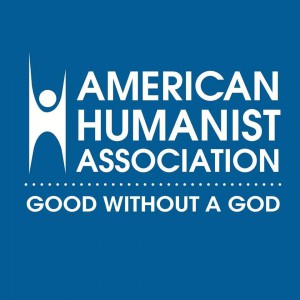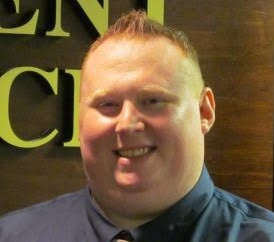Meet the Intern: Nicholas Copley

Please welcome the Appignani Humanist Legal Center’s new legal intern, Nicholas Copley!
TheHumanist.com: What is your educational and work background?
In 2012 I graduated from Indiana University with a bachelor’s degree in criminal justice. After graduation, my wife, daughter, and I relocated from Indiana to Delaware, and in the ensuing years I’ve worked as a private investigator looking into healthcare fraud and money laundering. I am currently in my fourth year at Delaware Law School Widener University and am set to graduate in May of 2020. I also work as a full-time paralegal for the Delaware Department of Justice in the Environmental Unit.
TheHumanist.com: How did you first learn about humanism?
I first learned about humanism from an atheist-focused podcast. I was intrigued by the prospect of an organization that advocates for ethical policy-making from a secular perspective.

Nicholas Copley
TheHumanist.com: Did you grow up in a traditional religious faith? How did it impact you?
I grew up and was baptized Methodist in a very conservative rural area in Indiana. The lack of diversity among both people and viewpoints inspired me to move away from my hometown and enroll in an undergraduate program in the more metropolitan capital, Indianapolis.
TheHumanist.com: What interested you most about interning for the American Humanist Association?
As an atheist, the Establishment Clause is a very important issue to me. The American Humanist Association is the best place for me to immerse myself in the law surrounding that subject, as well as have a positive impact on the lives of people who have been negatively affected by violations of the First Amendment.
TheHumanist.com: What book has influenced you the most?
The book that first introduced me to rational thinking and how to use a science-based analytical approach was The Science of Harry Potter, by Roger Highfield. I was inspired by the way Highfield takes great care to used evidence-based thinking to explore how the supernatural aspects of Harry Potter could be made real through science and technology.
TheHumanist.com: If you could have dinner with any three people in the world (living or dead), who would they be and why?
Thurgood Marshall, who was a lawyer and later served on the US Supreme Court. His dogged advocacy for groundbreaking civil rights issues serves as a model for ideal lawyering.
Bill Finger, co-creator of Batman. Despite not receiving credit for his contributions to Batman until after his death, Finger’s work was of such high quality that the award for excellence in comic book writing is named after him.
Christopher Hitchens. His eloquent yet efficient get-to-the-point speaking style inspired me to improve my own ability to advocate for my point of view.
